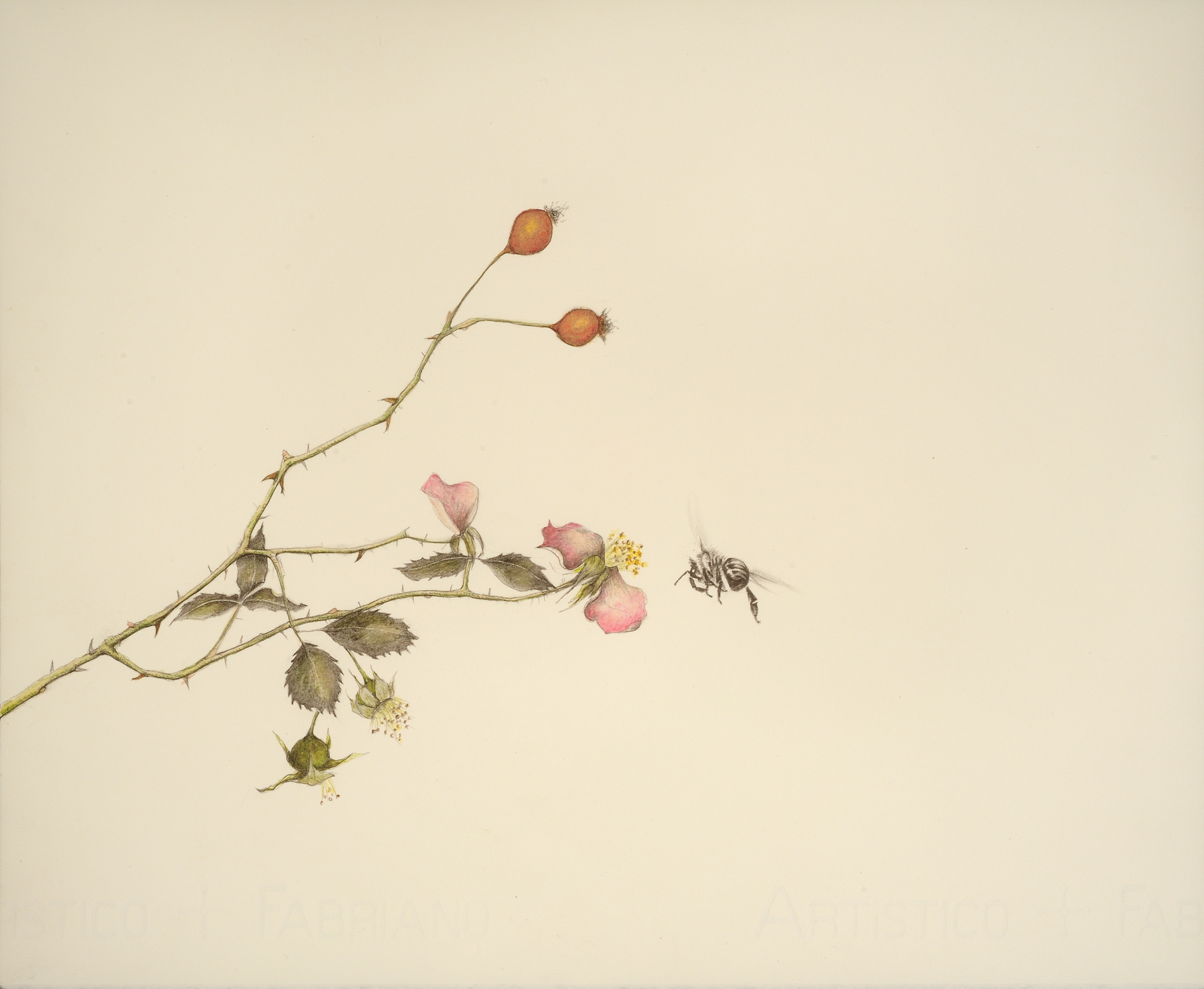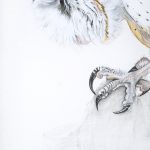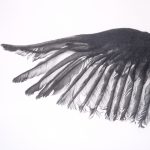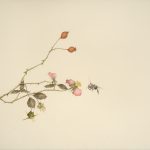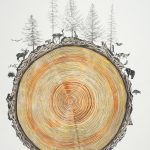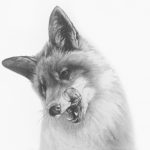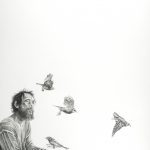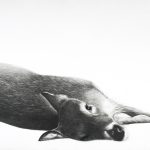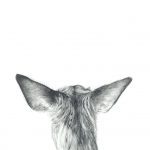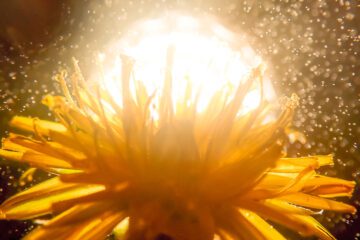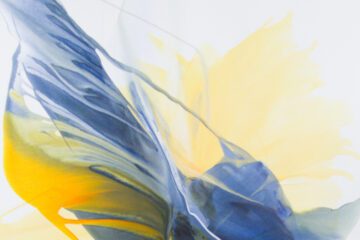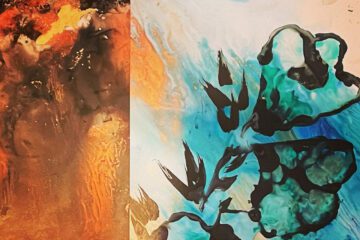Artist’s Statement: I make drawings of the natural world, transient moments of grace and beauty in an age of disappearance. Inspired by plant and animal studies of the Northern Renaissance, Netherlandish devotional panel paintings, and nature mysticism as expressed through various forms of art, music, poetry and prose, my art acknowledges interconnectedness in nature and our loss of connection with the sacred wild.
Flyway‘s Visual Art Editor, Julia Bilek, conducted an interview with the artist to accompany this selection of art.
JB: Your subjects have been animals, plants, and other elements of the more-than-human world. Has the tone or meaning of your work changed as we’ve become increasingly aware of the effects of climate change in recent years?
RC: Yes, I believe it has, ever so subtly. I used to be inspired solely by the beauty and mystery of the natural world and I strove to convey a those qualities in my drawings. My sense of wonder has not waivered, but there is more often sadness rather than joy now when I approach my work. I feel it my duty to document what we are losing, as a way to remember. A current series of drawings (“Away”) was inspired by Hayden Carruth’s poem, “Essay” – in particular these lines: “This has been the time of the finishing off of the animals. They are going away – their fur and their wild eyes, their voices.”
JB: Your artistic practices are one of the ways you honor and our interconnectedness with nature, as you explain in your artist’s statement. What other ways do you see people connecting with “the sacred wild”?
RC: We can all connect with the sacred wild by simply getting out of our heads and surrendering to the mystery of the unknowable universe of which we are a part! Unplug. Take a quiet walk in the woods and be respectful of other lives. Listen to birdsong without trying to identify. Garden with humility and discover worlds within worlds. Lose yourself! It’s good for you. We are all part of that sacred wild, even if we’ve forgotten.
JB: You’ve done a lot of work in the past that brings image and text together, as we do here at Flyway. Most notably, you created a Book of Hours (available on your website as a free, downloadable PDF) that pairs your artwork with poetry and playlists. Do you see a specific place for the collaboration of visual art and literature in the broader environmental world of environmental arts?
RC: I love the synergy of inter-disciplinary collaboration and cherish hybrid spaces, like Flyway, which nurture cross-fertilization. Now is not the time to silo our talents. As we face environmental catastrophe, my feeling is that like-minded creatives should work together for the greater good. I suspect that, like me, many artists and writers are introverts. The internet allows for broader conversations and online spaces like Flyway, The Dark Mountain Project, and Culture Declares Emergency, offer both voice and community to those who might otherwise feel isolated or marginalized in this very loud and destructive world.
Rebecca Clark is a Maryland artist who works primarily in pencil on paper. She received her BA in Art History from Swarthmore College. She has exhibited in numerous venues, domestically and internationally. Her work has been featured in publications such as: Alterity Journal, Zoomorphic, Elementum Journal, Works & Conversations, Dark Mountain, EarthLines, Orion Magazine, and The Learned Pig. Her drawings have also served as illustrations for poetry chapbooks published by Corbel Stone Press and Tavern Books.

